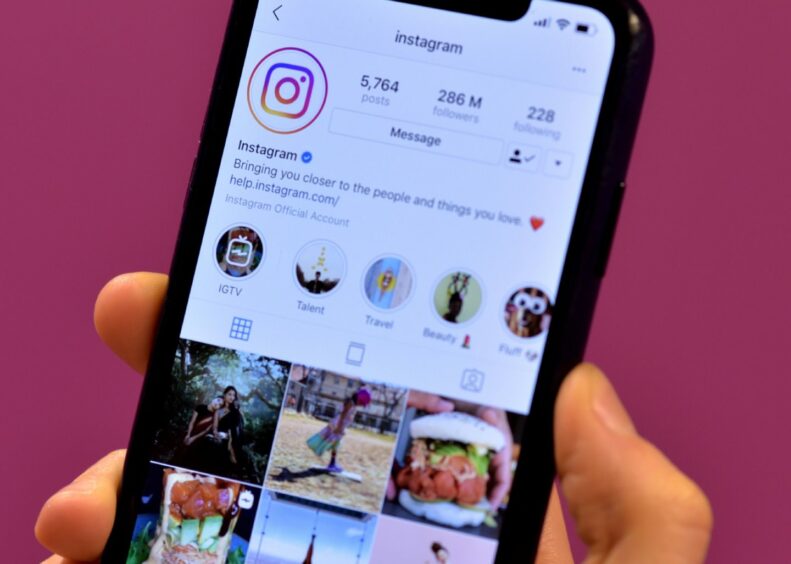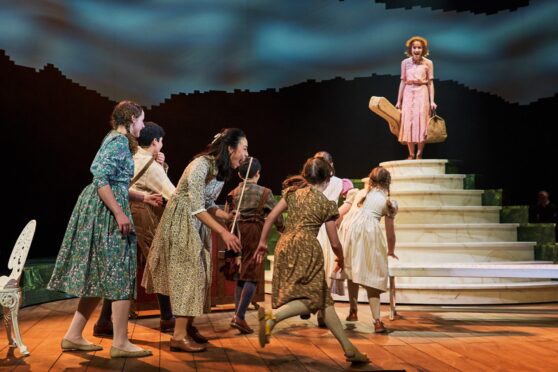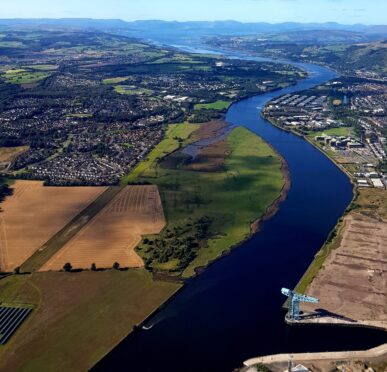Social media posts can spread rapidly anywhere in the world, making online bullying a real danger.
In recent years, many videos of pupils being attacked in local parks and in schools in Tayside and Fife have been widely shared.
So cyber safety expert and former teacher Dr Claire Sutherland has shared with us her advice about online bullying in order to protect children when they are using the internet.
She wants parents, carers and children to know how easy it is for a post to be seen by millions of people – and what to do when it happens to you.
Dr Sutherland, a former primary teacher in Dundee, researched cyberbullying after hearing of parents’ worries at schools in the city and in Australia, where she taught primary education.
She has also researched online safety for the Australian government and advises charities such as National Online Safety.
Now she is helping schools across Tayside recognise the warning signs of online bullying and how significantly it can damage someone’s life.
She launched BCyberAware to empower and educate children and their families about maintaining a safe digital footprint while learning how to respond to cyberbullying.
How has bullying changed?
When children are bullied at school and in their community, going home is often a safe place where they can escape the taunting.
However with the rise of social media, it has become increasingly challenging for children to break away from the bullying.
Dr Sutherland says it is difficult for young people to avoid social media, even if they are bullied.
“The bullying goes home with them and continues on their phones and their iPads,” she said. “It is hard for young people to just turn off – they would rather know what is being said about them online.”
She continued: “Cyberbullying is something that is never going to go away. It’s important to let people know – especially young people – that it is not normal behaviour and you don’t have to sit back and accept it.”
Online bullying advice
Dr Sutherland has shared some of her top online bullying advice to help protect children.
1. Keep online accounts private
Children often want to have as many followers as possible, especially on sites such as TikTok.
However with likes and views comes the dangers of the posts being seen – and possibly shared – by anyone.
That, Dr Sutherland says, can open children up to being bullied or targeted.
2. Talk with children about the apps they use
The online world is rapidly changing with new apps and chatrooms becoming popular every day. Dr Sutherland challenges parents to understand what sites they are viewing.
The easiest way to do this, she says, is by normalising conversation around the web and keeping safe.
Familiarise yourself with parental controls and key social media settings which could act as a protection for children.
And in turn, children will be more likely to seek help when they have a negative experience.
Dr Sutherland said: “Parents are busy and are also often not as tech savvy as kids.
“The apps are changing so quickly and parents might not be aware of how to keep up with what they are doing online.
“But having that conversation is really good because it means kids feel comfortable coming to you when something happens.”
3. Be an upstander – not a bystander
Online bullies usually know the person they are targeting personally and could even be in their school class.
Those who witness bullying online may be afraid of intervening in case they are targeted by the perpetrator.
But Claire challenges pupils to be an upstander where they can by letting the victim know they are not alone.
She said: “I try to encourage children to speak out when they see something online that they think is inappropriate or hurtful to someone.
“If you feel confident enough to change the direction of the conversation by posting back and saying something positive to the person being targeted, it could change things.
“The perpetrator may stop because they see they are not getting the reaction they want.
“It is hard for young people to put themselves out there so my other suggestion is to send a private message to the person being targeted. Sometimes it is just helpful for them to know not everyone is against them.”
4. Ignore, block and report online bullying
Children should practice building a resilience to online bullying by trying to ignore the hurtful messages.
While this can be extremely difficult, bullies may be writing hurtful comments to try to get a reaction and Dr Sutherland says many will stop when they are ignored.
The best way to respond to these messages, she says, is to block the user and report it to the site.
Anyone who witnesses bullying should report the incidents to a relevant authority, such as teachers, police or parents.
Scotland’s anti-bullying service RespectMe offers guidance for young people who are experiencing bullying and their parents and teachers.
If you feel like the bullying you witnessed at school or online was a hate crime, you can also report it to Police Scotland via 101.
Childline support young people with any worries they may experience, including mental health and bullying.
They can be contacted confidentially on 0800 11 11 or use their free 1-2-1 counselling service.
Read more from our bullying series
-
- ‘Mummy I just want to die’: Devastating words of Fife girl, 7, after years of bullying
- Bullying in schools: Our survey reveals 9 in 10 parents do not think schools can effectively tackle it
- Bullying advice: How to help children who are being bullied
- Types of bullying: What is classed as physical, sexual and prejudicial bullying?
- Devastating effects of bullying on children in the short and long term
- OPINION: I attempted suicide after years of bullying – schools need to take it seriously
- Autistic Angus teen terrified to go to school as pupil threatens to ‘kill him
- How to report bullying to schools and the police
- Mum says alleged assault of her 5-year-old son shows bullying happens at any age
- Race, religion and sexual orientation among main reasons for school bullying in Tayside and Fife
- Relentless bullying makes Autistic Angus teen pull her own hair out and say she wants to die
- Anti-bullying policies: Schools take restorative action to resolve bullying
- Education Secretary: School exclusions must be ‘last resort’ for dealing with bullying
- Traumatised Perthshire teen ‘hid in classrooms’ while bullies who pushed her down stairs faced ‘minimal punishment’












